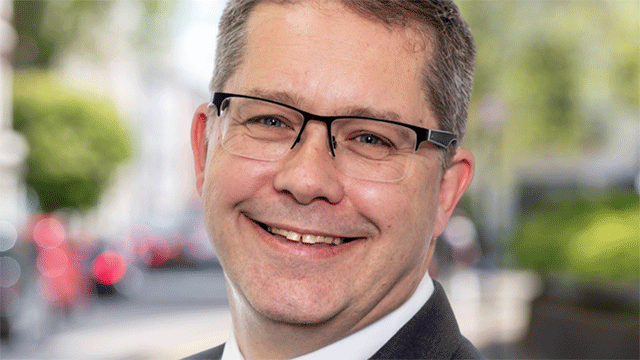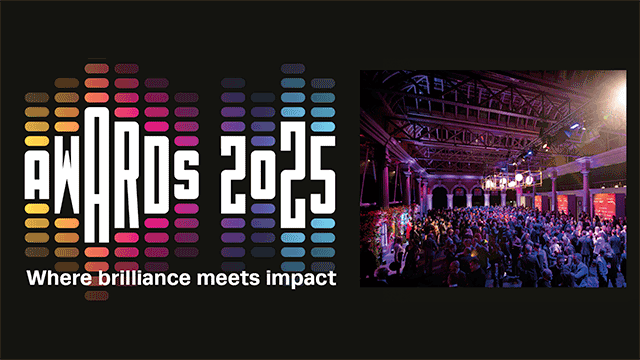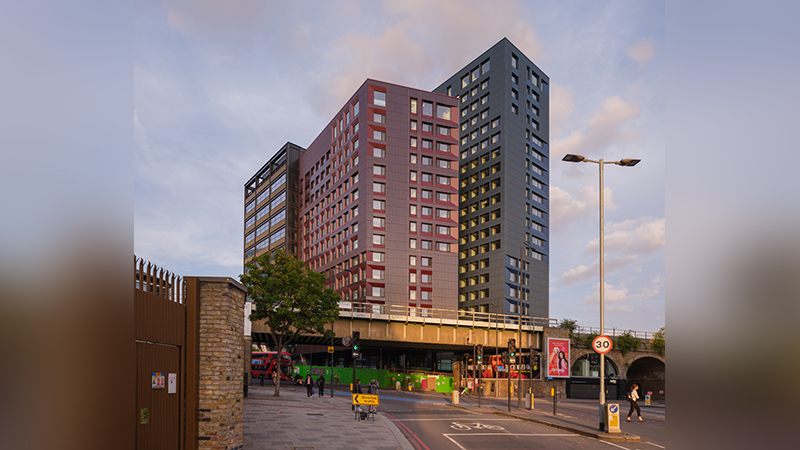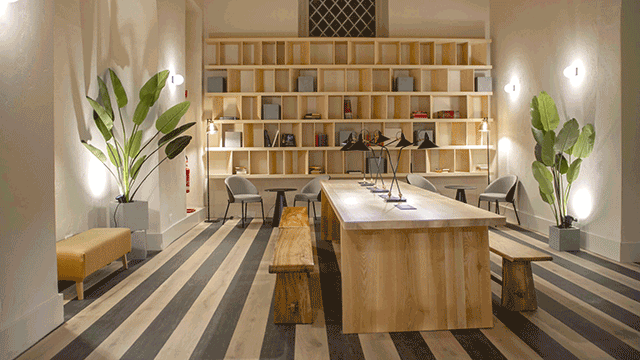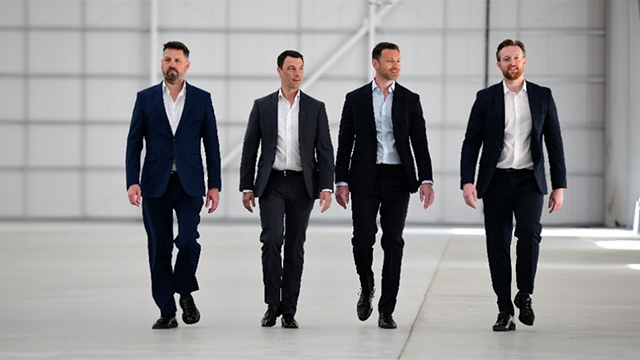Cindy Andersen has joined Ikea’s shopping centre arm at a pivotal point in the furniture giant’s 78-year history. The traditional out-of-town, blue-and-yellow big-box format is no longer the sole focus. Now, the retailer is pursuing mixed-use city centre locations, disruptive store formats and digital services. Increasingly, it is also becoming a real estate investor.
Led by Andersen – who became one of Europe’s most prominent young business leaders in real estate when she stepped into the role of managing director in February – Ingka Centres is shaking off pandemic-driven development delays and picking up the pace of expansion. At the heart of this is the company’s community-driven “meeting place” philosophy, devised a few years ago as its future-proofing strategy.
Its debut retail and residential Ikea-anchored scheme opened in China last month under the Livat brand, and gives a flavour of the scope of these schemes. At the 1.4m sq ft, 380-store Changsha centre, 500 flats and co-working spaces have been designed and furnished in collaboration with Ikea to appeal to Changsha residents working from home.
But even as the furniture giant looks to ramp up its exposure to different uses, bricks-and-mortar shopping is set to remain a constant. Andersen says her faith in physical retail is underpinned by “very reassuring” trends seen globally.
“When we reopen our markets or our meeting places, we see visitors returning, which is absolutely the most important indication – there is relevance for physical meeting points in the future,” she tells EG on a video call from her home in Copenhagen. “I have a bright and very optimistic view and a constant agenda for attractive real estate locations.”
Meet me at Ikea
Supporting this belief in the resilience of physical shopping is sister company Ikea, which is at the centre of an eye-catching £385m plan to buy the former Topshop store at 214 Oxford Street, W1, for its own flagship format. As EG went to press, parent Ingka Group was still in advanced negotiations with the site’s administrators at KPMG.
There are similarities to the ethos behind Andersen’s strategy for establishing Ikea-anchored, mixed-use schemes. With her remit at Ingka Centres, leading a business of some 1,500 people, a focus on ensuring that locations are “accessible” and convenient are among the “most important criteria”.
“We make sure we end up in locations where many people are – it is about being present in the everyday life of people,” says Andersen. “We want to create the meeting places of the future. They should add value to the places we are in, and also be good for the planet. It’s about creating a business where the [social] purpose and the business are not in contradiction.”
Andersen says Ingka has around €5bn (£4.3bn) to deploy on its real estate portfolio “in the coming years”, across acquisitions, developments and repositioning existing properties.
She is tight-lipped on the specifics of the expansion plans, but says her team is “continuously looking” to grow its 45-asset portfolio into large cities in the UK. It is also “browsing” for more locations in the US and mainland Europe, she adds.
“We are not going with quantity, but the quality of the assets we are looking at,” she says. “Being in a global arena means we can follow real estate cycles, making sure we are investing in the right asset at the right time, in the right location.”
Several launches are expected in the coming months – the long-awaited redevelopment at Hammersmith’s 292,000 sq ft Kings Mall, W6, is on the cards, as well as openings in San Francisco, Toronto and China.
Big ear to the ground
For Andersen, London – one of her “favourite cities in the world” – is a safe bet on retail. Work at Kings Mall, which it bought for £170m in January last year, is progressing at “full speed” and is scheduled to complete this winter.
It marks the group’s first owned Ikea location in the UK, having previously leased stores including a 500 sq ft, Derwent-owned showroom on Tottenham Court Road, W1, which closed in July.
As well as an Ikea anchor store, plans to upgrade the mall include a community hub, food and beverage pop-ups and flexible events space. Additions such as leisure, offices or residential could potentially follow, although these are unlikely to pan out until after the project completes. “When we open, we will learn a lot of things,” says Andersen. “We will see more opportunities, other parts of the offer that we might be missing.”
The shopping centre’s tenant mix will be broadened to boost footfall, and external public realm improvements will be made. Andersen says her previous role working occupier-side at Inter Ikea Group has stood her in good stead with tenant negotiations. “Being close to the retail mindset means we have a greater ability in understanding the needs of all [the businesses] we are collaborating with,” she adds.
“Even though commercial real estate is new to me, I’ve been working for many years with customers through my time in Ikea. A lot of things are basically the same. It is about starting from listening to people and understanding their needs, then setting the strategy according to those.”
Fundamental to that is the “constant work” of having “very big ears to stay relevant”, Andersen says. Capturing data from different sources is also essential to the process.
Circling back
As well as staying relevant, Andersen is eager to ensure the company stays responsible. In line with Ikea’s stated goal to become a zero-waste, “climate-positive” business by 2030, Ingka Centres is targeting 100% renewable heating and cooling by that same year and 100% renewable energy across the portfolio by 2025.
Andersen also wants Ingka’s meeting places to make it “easier and more attractive” for people to “live healthier and more sustainable lifestyles”. In fact, this is a “precondition” for expansion.
The circular ReTuna mall in Eskilstuna, Sweden – where 100% of goods are either recycled, reused or sustainably produced – is a major source of inspiration for Andersen. For her, it “sets the agenda” in how the business should approach sustainability.
“We believe that sustainable business is a good business,” Andersen says.
Ingka Centres itself is trialling circular services at its meeting place locations – last October it joined forces with a local social enterprise network to launch an upcycled goods store in Brescia, Italy.
“We know from our research that people don’t want to be wasteful,” she says. “They’re willing to change their habits to reduce environmental impacts and want to be part of the change.”
Andersen adds that although people are open to buying second-hand goods, convenience is “essential” to making these opportunities successful. “We see big potential here for responding to what our customers want,” she says.
Ikea has also had to boost its digital offer during the pandemic. Initiatives being trialled at Ingka Centres’ locations include digital and omnichannel services, such as local ecommerce platforms and shopping events. Andersen envisages that a greater focus on logistics and click-and-collect services will become “super important” to its meeting place locations.
Role model
By responding to a rapidly shifting retail environment with plenty of investment in new stores and pilot projects, Ingka hopes to cement a role in creating “a better everyday life” for people. But this ambition can only go so far without a bold stance on diversity and inclusion to accompany it – a topic that is close to Andersen’s heart.
“I’ve been very fortunate to be in an organisation where equality and diversity and inclusion is so high on the agenda,” she says, adding that she has “always felt very supported”.
“I always felt that I can go for my dreams and am challenged with growth opportunities for myself,” she says. “As a leader, I have a huge responsibility to ensure that others around me feel the same.”
The gender balance on parent Ingka Group’s eight-member supervisory board fell to 25% in its 2020 financial year, from 37.5% in the previous year. Levels across management roles have stayed mostly static at nearly 50%.
“There is a need for the whole industry to do much more,” says Andersen. “There are a lot of initiatives at many companies, but the numbers are still not 50-50.” Crucial to this is setting clear objectives – “What’s measured gets done,” says Andersen – and putting the right recruitment processes and performance management systems in place.
The “next leap” is to become a “truly inclusive organisation for all dimensions of equality, diversity and inclusion”, beyond just gender. Andersen throws down the gauntlet for real estate to “broaden” the agenda to work on ensuring the industry “represents the societies we’re in”.
“That’s a challenge that I, as a leader, have taken on,” says Andersen. “I would love to see other leaders join me on that journey.”
To send feedback, e-mail pui-guan.man@eg.co.uk or tweet @PuiGuanM or @EGPropertyNews




